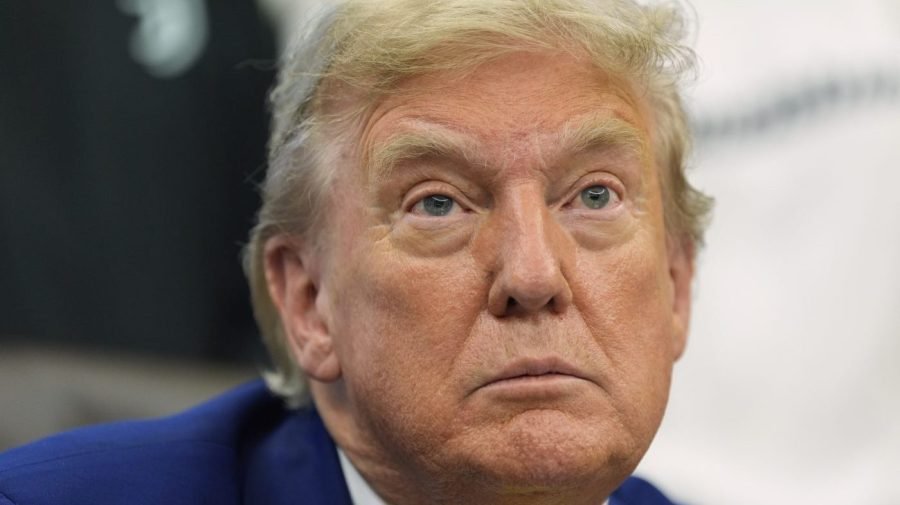
President Trump is expected to make a decision about whether to take direct action against Iran in the next two weeks, he said Thursday in a message delivered through his spokesperson.
White House press secretary Karoline Leavitt told reporters at a briefing that she had a message directly from Trump in response to speculation about whether he would get directly involved in the conflict between Iran and Israel.
“Based on the fact that there’s a substantial chance of negotiation that may or may not take place with Iran in the near future, I will make my decision whether or not to go in the next two weeks,” Trump said in a statement read aloud by Leavitt.
Leavitt said correspondence between the U.S. and Iran “has continued” as the two sides engage in negotiations, though she would not provide specifics about whether they were direct or through intermediaries.
Iran must agree to no enrichment of uranium, and Tehran must not be able to achieve a nuclear weapon as part of any diplomatic agreement, Leavitt said.
Trump was noncommittal Wednesday morning about a potential strike against Iran’s nuclear facilities: He dodged a question about whether he’s moving closer to ordering a strike against Iranian nuclear facilities.
“I may do it, I may not do it. I mean, nobody knows what I’m going to do,” Trump told reporters. “I can tell you this, that Iran’s got a lot of trouble. And they want to negotiate. And I say, ‘Why didn’t you negotiate with me before all this death and destruction?’”
The president has met each day since Tuesday with his national security team in the Situation Room.
Trump has throughout his political career repeatedly fallen back on a “two week” timeline to decide on policy decisions, including in recent weeks when he said he would know in roughly two weeks whether Russian President Vladimir Putin was interested in negotiating an end to the war in Ukraine.
Asked if he would stick to his two-week timeline in the case of Iran, Leavitt did not directly answer but described the situation in the Middle East and the war in Ukraine as “two very different, complicated global conflicts.”
Some of Trump’s allies, including Rep. Marjorie Taylor Greene (R-Ga.), have cautioned against engaging in a war with Iran, arguing it would contradict his campaign rhetoric not to get the U.S. involved in foreign wars. Others, like Sen. Lindsey Graham (R-S.C.), have pushed for more aggressive action against Iran, insisting Tehran poses a grave security threat.
“The president hears all voices across the country, and he makes decisions based on his instincts. And he has always said diplomacy is his first option,” Leavitt said Thursday.
Updated 2:07 p.m. ET


